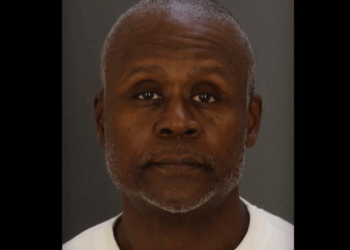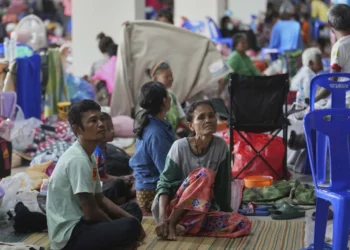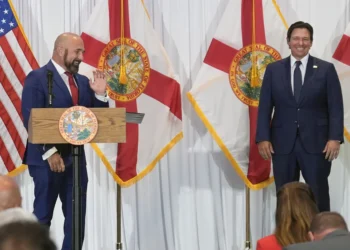China and other adversaries are threatening America’s food supply. A recent legislative push promises to better protect Americans while redefining what constitutes national security policy.
On Tuesday, Agriculture Secretary Brooke Rollins and other top Trump administration officials announced the National Farm Security Action Plan. According to the Agriculture Department, the plan “elevates American agriculture as a key element” of national security and seeks to strengthen the “resilience of our nation’s food and agricultural systems.” The National Farm Security Action Plan addresses foreign ownership of farmland, guards against intellectual property theft, preempts biothreats, targets fraud, and works “to identify non-adversarial partners to work with when domestic production is not available.”
Importantly, the proposal calls for increasing contingency planning and classifying farms, foods, and supply chains as national security assets, affording them protection as critical infrastructure.
“American agriculture is not just about feeding our families,” Rollins told reporters, “but about protecting and standing up to foreign adversaries who are buying our farmland, stealing our research, and creating dangerous vulnerabilities in the very systems that sustain us.” The Trump administration is clearly prioritizing what it calls a “launch point” for additional efforts.
Rollins was joined by Attorney General Pam Bondi, Defense Secretary Pete Hegseth, and Homeland Security Secretary Kristi Noem. In his remarks, Hegseth cited the threat posed by foreign ownership of land near strategic bases and military installations, while Bondi and Noem emphasized the dangers of agro-terrorism and supply chain vulnerabilities.
The administration has also worked with policymakers at the state and national levels, including governors and senators from locales where agriculture is dominant. This is fitting. For years, state governments, not the feds, have been at the forefront of protecting our nation’s farmland from foreign adversaries such as China.
Food has long been a weapon in conflict. Food played a central role in World War I, with the Allied Powers utilizing blockades to reduce Imperial Germany and Austria-Hungary’s ability to feed their troops and citizens. The United States was so concerned with rationing that President Woodrow Wilson appointed a Stanford University-trained engineer named Herbert Hoover to his first government posting to manage America’s foodstuffs during wartime. Agriculture played a similarly important role in subsequent wars, and American wheat was often at the center of Cold War trade disputes and negotiations.
Some of America’s greatest foes have used food as a weapon, from Vladimir Lenin and Joseph Stalin to China’s Mao Zedong and the Taliban. All used starvation to achieve their political objectives. But in 2025, the battlespace looks different — more complicated and more dangerous — as our adversaries seek to exploit the open, free market system that has helped make the U.S. an agricultural powerhouse.
China’s industrial espionage has long prioritized stealing America’s agricultural secrets. But intellectual property isn’t our adversaries’ only tactic. They’ve resorted to sabotage, as well.
UFO REPORTING IS CAUGHT BETWEEN EXCESS SENSATIONALISM AND EXCESS SKEPTICISM
In June, two Chinese researchers at the University of Michigan were charged with smuggling a dangerous, crop-killing fungus, a “potential agroterrorism weapon responsible for billions in global crop losses,” as the USDA put it, into the U.S. Days later, another Chinese citizen was caught sending packages of concealed biological materials into our country. The FBI has opened no fewer than 100 bio-smuggler investigations in recent years. Cyberattacks against our food supply have also markedly increased.
As the USDA noted, our nation’s adversaries are “playing the long game.” Thwarting their ambitions will require increased funding, focus, and interagency and intergovernmental cooperation. Securing the homeland requires protecting America’s heartland, and there isn’t any time to waste.
The writer is a Washington-based foreign affairs analyst. His views are his own.
















